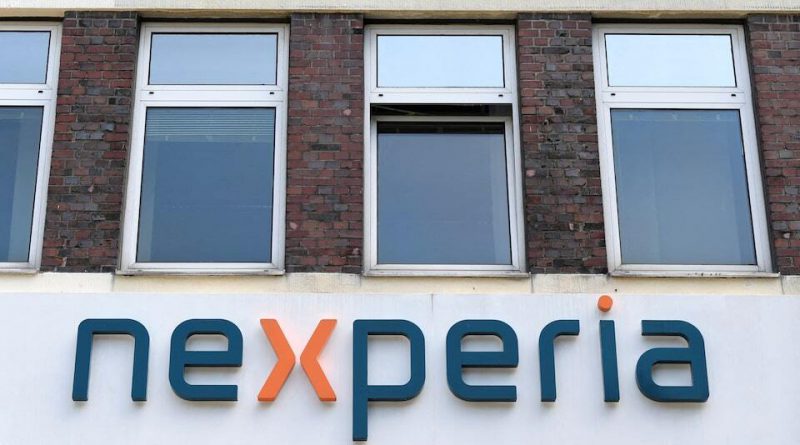Diplomacy Over Chips: Netherlands Moves to Mend Ties
In a decisive move toward restoring international trust and supply chain stability, Dutch Economy Minister Vincent Karremans announced plans to meet a senior Chinese official this week to resolve tensions surrounding semiconductor company Nexperia NV
The development marks a hopeful step toward balancing technology security, economic cooperation, and global industrial resilience.
The diplomatic outreach follows the Netherlands’ recent decision to seize control of Nexperia, a China-owned chipmaker, over concerns about potential intellectual property transfers out of Europe.
The move sparked a brief trade standoff, with Beijing responding by restricting exports of Nexperia’s finished products.
However, both nations now appear ready to prioritize dialogue over division, underscoring the interdependence that defines the modern semiconductor ecosystem.
A Measured Step Toward Balance
Minister Karremans emphasized that the Netherlands’ decision was not part of a geopolitical alliance or anti-China campaign. “The Chinese have the impression that we are teaming up with the Americans,” he said in a televised interview.
“But this was about ensuring that strategic European assets remain protected while keeping global collaboration open.”
This nuanced stance reflects Europe’s growing effort to safeguard technological sovereignty without isolating key trade partners. By engaging in direct talks, the Netherlands aims to find a sustainable middle ground between national security and global supply stability — a balancing act that many countries are now facing in the race for chip independence.
Founded in Nijmegen and acquired by China’s Wingtech in 2019, Nexperia has become an indispensable player in the global automotive supply chain.
Its chips, while not cutting-edge, are essential for vehicle electronics, from power management to safety systems. Most of its production takes place in Hamburg, Germany, before being shipped to China for packaging and global distribution.
With car manufacturers relying heavily on these components, industry leaders voiced concern that prolonged disruptions could slow production lines.
However, both Dutch and Chinese officials acknowledge that their industries are mutually dependent — a reality that favors cooperation over confrontation.
Karremans highlighted this point, noting, “Chinese carmakers also need Nexperia’s chips. We have a mutually dependent relationship. Everyone has an interest in solving this together.”
Diplomatic Channels in Motion
Behind the scenes, Dutch diplomats have been working closely with Chinese counterparts to de-escalate the situation. The upcoming high-level meeting between Karremans and a Chinese minister signals growing momentum toward a peaceful resolution.
“This matter is being discussed at the highest levels,” Karremans said, confirming that his meeting is set to take place “within days.”
The talks are expected to focus on ensuring that Nexperia’s operations can continue smoothly within Europe while providing assurances that intellectual property remains protected.
Analysts believe this approach could serve as a blueprint for future technology governance — one that safeguards national interests while preserving the spirit of open trade.
The Nexperia issue has become symbolic of a larger global conversation: how to manage technology flows responsibly in an era of strategic competition.
By taking a diplomatic approach, the Netherlands is setting a constructive example of how smaller nations can assert control over critical assets without triggering full-scale trade conflicts.
Experts say that if the upcoming meeting yields progress, it could inspire similar approaches across Europe, particularly as governments reassess Chinese investments in sectors like energy, data, and semiconductors.
Economic Optimism Amid Challenges
Despite the turbulence, Nexperia remains a profitable enterprise, reporting $331 million in net profit in 2024. Its success underscores the company’s critical value not only to Wingtech but also to Europe’s technology landscape.
The Dutch government’s intervention, rather than being punitive, is seen as an effort to ensure that innovation, expertise, and economic gains remain shared and secure.
In the long run, the episode may strengthen rather than weaken global supply chains by promoting transparency, cooperation, and shared standards in the semiconductor industry.
As global demand for semiconductors continues to surge — driven by electric vehicles, artificial intelligence, and digital infrastructure — collaboration between nations has never been more vital.
The Netherlands’ measured diplomacy offers a reassuring reminder that progress in technology does not have to come at the expense of international trust.
With dialogue replacing division, and cooperation emerging as the new strategy, both the Netherlands and China stand to benefit. As Minister Karremans prepares for his crucial meeting, the world watches closely — not just for the outcome of a corporate dispute, but for the future of fair, forward-looking technology diplomacy.


